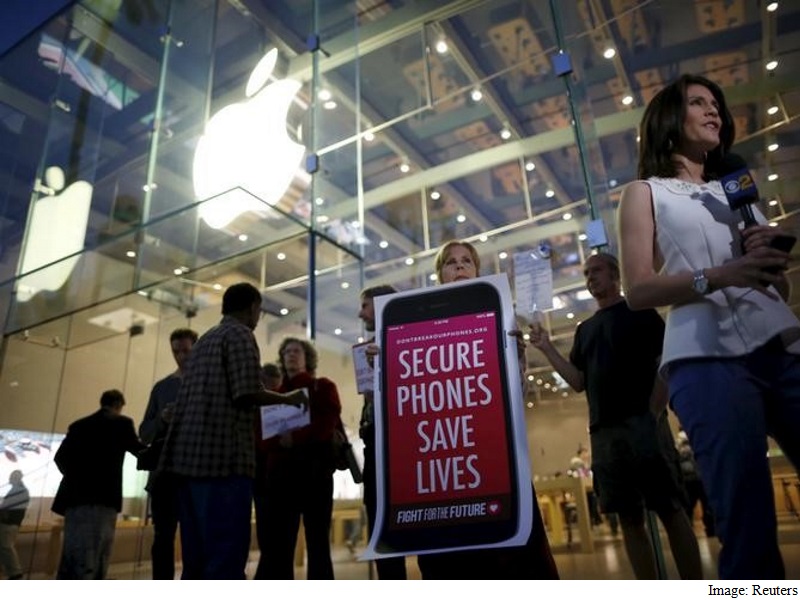Forcing Apple to help unlock an iPhone is a "modest" demand which may turn up vital evidence in a terrorist attack, the US government argued Thursday, upping the ante in its legal standoff with the technology giant.
A brief filed by the Justice Department was the latest shot in a battle which has fueled intense debate on whether Apple must comply with a court order to help the FBI break into a phone used by one of the shooters in the December terror attack in San Bernardino, California.
The filing was a legal response to a challenge by Apple, which is backed by a broad coalition ofpowerful rival technology firms and activists and argues that the FBI is seeking a "back door" into all iPhones as part of the probe.
The government brief, in sharp contrast, argued it is a single case of technical assistance in an important national security investigation.
"The court's order is modest. It applies to a single iPhone and it allows Apple to decide the least burdensome means of complying," Justice Department lawyers wrote.
"It is a narrow, targeted order... The government and the community need to know what is on the terrorist's phone, and the government needs Apple's assistance to find out."
An FBI victory in the case could serve as a legal precedent backing requests for access to iPhones by law enforcement agencies throughout the US.
Apple general counsel Bruce Sewell slammed the brief as reading "like an indictment" and appearing crafted to smear the iPhone maker with innuendo such as implying a "sinister" relationship with China.
He bashed the brief as "an unsubstantiated effort to vilify Apple" that was on a flimsy legal footing, calling it "a cheap shot."
Apple attorneys said that the California-based company has "categorically and absolutely not" been asked by any government other than the United States to build a back door into a product.
The government brief said the request is similar to requiring telephone companies to install wiretaps under court orders.
Apple is "fully capable of complying with the court's order," government lawyers wrote.
Intensifying feud
The brief repeated the argument hotly contested by Apple that the iPhone maker took a "deliberate marketing decision to engineer its products so that the government cannot search them, even with a warrant."
The brief repeated the argument hotly contested by Apple that the iPhone maker took a "deliberate marketing decision to engineer its products so that the government cannot search them, even with a warrant."
It said Apple and its backers "try to alarm this court with issues of network security, encryption, back doors, and privacy," and called this "a diversion."
Apple counters that the Justice Department is seeking unfettered and "breathtaking" power and that it is exercising its legal right to challenge the move in court.
The brief also raised the possibility the government would demand Apple's closely guarded software secrets its source code and private electronic signature if the company refuses to cooperate.
"The government did not seek to compel Apple to turn those over because it believed such a request would be less palatable to Apple," the brief said.
"If Apple would prefer that course, however, that may provide an alternative that requires less labor by Apple programmers."
Apple was to file its legal response to the brief by March 15.
"They are trying to use this case... as a back door to the iPhone," Apple attorneys said, in the intensifying war of words.
A judge is scheduled to hear oral arguments on March 22 in the case, which has sparked a debate around the globe, even from the top UN human rights official, who argued that forcing Apple to help could weaken overall security for activists around the world.
Apple's chief Tim Cook claimed the order would force Apple to "hack" its own devices and compromise security for all Apple products.
Others have argued that weakening iPhone security would create software that would leak out to malicious actors, and that Apple and other technology firms would be "conscripted" to spy on its customers.

No comments:
Post a Comment